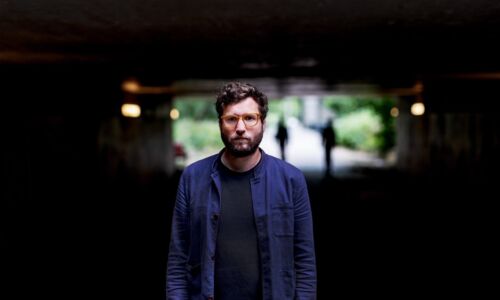Brightspace function turned off after privacy complaint
-
 Photo: Erik van 't Hullenaar
Photo: Erik van 't Hullenaar
The new digital learning environment Brightspace – successor to Blackboard – is praised for being user-friendly. But according to students Niek Steenhuis and Bas van der Zandt, the system violates students’ privacy. The university has taken measures.
Until recently, professors could see exactly when a student had logged into Brightspace for the last time. ‘Imagine that at 4 am, after a night out, you want to check something,’ said computer sciences student Bas van der Zandt. ‘A professor shouldn’t be able to comment about this. But who’s to say that they won’t judge me on it?’
Van der Zandt, a member of the student party AKKUraatd, isn’t the only one who has taken a critical look at Brightspace. Niek Steenhuis, a student of philosophy and art history, has also recently been looking at the digital learning environment, which replaced Blackboard at the start of this academic year. Steenhuis: ‘When I first used Brightspace, I didn’t need to agree to anything like a user agreement. That really surprised me.’
Via a mutual contact, computer sciences student Van der Zandt and philosophy student Steenhuis met each other. They decided to speak with Ronald Sarelse, a privacy officer at the university, and Brightspace project leader Erik Reinders. Those meetings took place in the past few weeks.
Turned off
In response to these events, the university has turned off the Class Progress function in Brightspace, at least temporarily. This functionality enabled professors to view all sorts of information at the individual level about the students who are taking their classes: for example, if certain documents have been downloaded, if students have completed certain assignments and, indeed, at what time of day (or night) students logged in.
According to project leader Erik Reinders, the Class Progress function lets professors supervise students individually. ‘A professor can then offer tailor-made assistance and thus improve the quality of education. That is our common goal and an important reason for choosing Brightspace.’ He thought it was ‘very unfortunate’ that this function had to be turned off, but he understood the need after speaking with the privacy officer.
Professors could see at what time of day (or night) students logged in.
Reinders and his colleagues are now going to try to make Brightspace more transparent. ‘Within Brightspace we have to more clearly communicate who can see what information and how long this information is stored.’ Reinders hopes that the Class Progress function will then soon be turned back on.
The Executive Board and the Participational Council will have to discuss Brightspace again. Reinders would not be surprised if this discussion took months or even more than a year. ‘We have to decide together what the best policy is and what guidelines should be used.’
Risk groups
The students Bas van der Zandt and Niek Steenhuis don’t think that clearer communication about who can see what information is going to solve the problems. Steenhuis: ‘The problem is more fundamental than that.’ On the basis of the data, the system can make an individual progress profile of each student in a given subject. Steenhuis thinks this is a problem. ‘Students could consequently be divided into risks groups. But the question is whether this categorisation is in line with reality.’ Steenhuis believes that a student who makes little progress according to Brightspace could actually be making progress. Non-measurable factors like motivation and contributing useful input to discussions, for example, are not weighed in the system.
According to Steenhuis, the way in which Brightspace is set up could influence how lecturers teach. ‘Lecturers could perhaps shape their teaching by making optimum use of the so-called benefits of Brightspace. By, for example, giving a lot of extra assignments that they’d otherwise not give.’
Privacy Act
And then we have the new General Data Privacy Protection Act (AVG). According to Van der Zandt, who specialises in digital security, this new law states that collecting data must always be in proportion to and in service of a justifiable goal. Simply collecting data without a clearly defined goal is out of the question.
According to Steenhuis, such a goal could be improving or safeguarding the quality of education. ‘But it’s questionable whether all of the data collected actually contributes to this. Students and staff have to think about this now: that has to be debated.’ Van der Zandt and Steenhuis claim that the fact that this discussion has only now arisen even though Brightspace has already been widely implemented shows that the university implemented Brightspace too quickly. ‘The university has really choked on the complexity of this debate.’
It is indeed true that the Executive Board decided last year to hasten the implementation of Brightspace. Erik Reinders: ‘Originally, Brightspace was going to be introduced in phases – the faculties would transfer to the system one by one. But everyone wanted to be the first, so the board said: then we’ll all start in September.’
Is that a mistake in retrospect? Project leader Reinders doesn’t think so. ‘The transfer went very well. In general, feedback has been very positive.’ Reinders said that, during the implementation, privacy was ‘an important theme’ and choices were tested on the basis of laws and regulations. ‘But evidently we went too fast in this respect.’




Michelle schreef op 27 september 2018 om 22:11
Ridiculous…
I’ve only heard negative things about the transfer from my teachers.. so I don’t know about that statement…